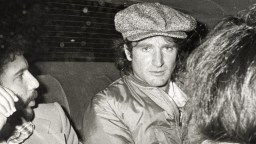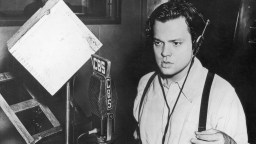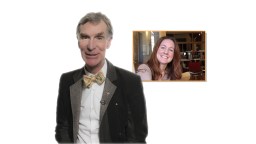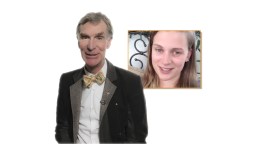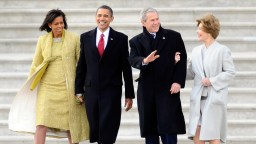All Videos
All Stories
Here’s a simple mind hack: If you’ve got a craving, let Tetris satiate it.
▸
2 min
—
with
Did you know Alfred Hitchcock was a formally trained engineer? Guru Madhavan could see it in his movies.
▸
2 min
—
with
The trick to producing water for astronauts is to figure out how best to extract it from the soil and atmosphere.
▸
3 min
—
with
Dr. James Fallon of UC Irvine explains what a psychopath is, how they work, and what they want from you — and he ought to know (but you’ll have to watch to find out why).
▸
5 min
—
with
Learn how to make up for lazy shortcuts made by your brain as well as how to guide other people around their first impressions of you.
▸
4 min
—
with
The “poet laureate of hip-hop” is troubled by society’s rising reverence for ignorance and prestige. This is a stark departure from pop culture and music from the past, which laid more focus on rooting for the underdog and questioning authority.
▸
5 min
—
with
Why is the pope’s visit to America a big deal? Aside from the sheer number of Catholics in the United States, Pope Francis inspires people the world over with the way he leads the Catholic Church.
▸
2 min
—
with
Al Qaeda in Iraq took advantage of information age innovation to take hold and subvert counter-terrorism measures. Retired Gen. Stanley McChrystal’s team had to adapt in order to contain this new enemy.
▸
4 min
—
with
In order to actually solve the refugee crisis you have to solve the problems from which the refugees are fleeing.
▸
2 min
—
with
The Science Guy argues that most anti-abortion legislation is derived from outdated beliefs that predate smart science by 50 centuries.
▸
5 min
—
with
Every time that you make a prediction you get a little bomb of dopamine in the reward pathways of your brain. That dopamine helps you pay closer attention, to process information more effectively, and to be more engaged with what’s going.
▸
2 min
—
with
1. Say “yes” to everything you’re inclined to say “no” to. 2. Find people willing to listen to what you have to say.
▸
3 min
—
with
Dr. Ildiko Tabori, America’s foremost therapist for comedians, delves into the correlation between mental illness and comedy.
▸
4 min
—
with
There’s an immense amount of power in data, power that can be harnessed to help keep you healthy.
▸
5 min
—
with
Narrative is the backbone of any successful podcast, although there’s a whole lot more to great audio entertainment than just the stories.
▸
2 min
—
with
The things that create stress in our lives are also the things that create meaning.
▸
3 min
—
with
Self-driving cars aren’t the only emerging technology facing major questions about ethics and accountability.
▸
4 min
—
with
This week’s question arrives via Big Think producer Elizabeth — What’s Bill Nye frightened of? In two words: climate change.
▸
4 min
—
with
One of the classic definitions of mindfulness is that it helps us not cling to what is pleasant and not condemn what is unpleasant.
▸
5 min
—
with
How does a couple get past mutual boredom? Behavioral economist Dan Ariely suggests they reframe their perception of the dilemma.
▸
3 min
—
with
Eat lean meat, eggs, and seafood, if that’s what you want. But remember the bulk of your diet should be vegetables, fruits, whole grains, beans, lentils, nuts, and seeds.
▸
5 min
—
with
The short answer: Fear inhibits our natural compassionate instinct.
▸
4 min
—
with
Asteroid mining will be a major engine for future economic growth, says author and entrepreneur Steven Kotler.
▸
4 min
—
with
Nobel Prize-winning physicist Frank Wilczek details the broad influence Albert Einstein had on his career, as well as society as a whole.
▸
3 min
—
with
Bill takes us on a journey through a skeptic’s brain to answer a question about spiritual existence.
▸
7 min
—
with
Harvard Business School professor Bill George says more people of character ought to run for office… but probably won’t.
▸
3 min
—
with
Columbia University forensic psychiatrist Michael Stone dispels common myths about the intersection of violent acts and mental health disorders.
▸
6 min
—
with
Microsoft needed a guardian angel when it decided to enter the console wars with the Xbox. Instead it got a Halo.
▸
4 min
—
with
Stephen J. Dubner of Freakonomics fame thinks the United States would benefit from a National Firearms Safety Administration to collate firearms data, similar to how the National Highway Traffic Safety Administration handles transportation data.
▸
2 min
—
with
The world is full of untapped potential. A lack of leadership leads to latent energy going to waste. In the Internet age, who will step up to be our much-needed figurehead for creative progress?
▸
2 min
—
with












